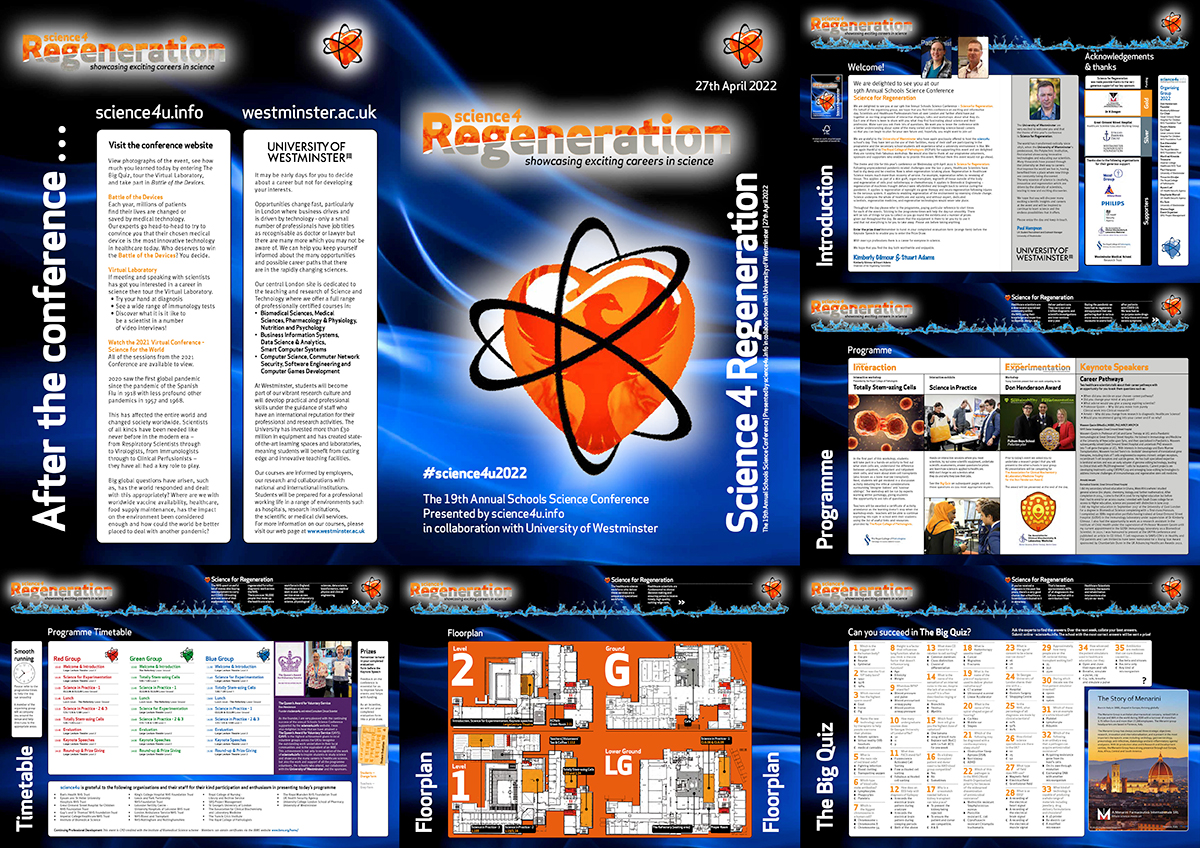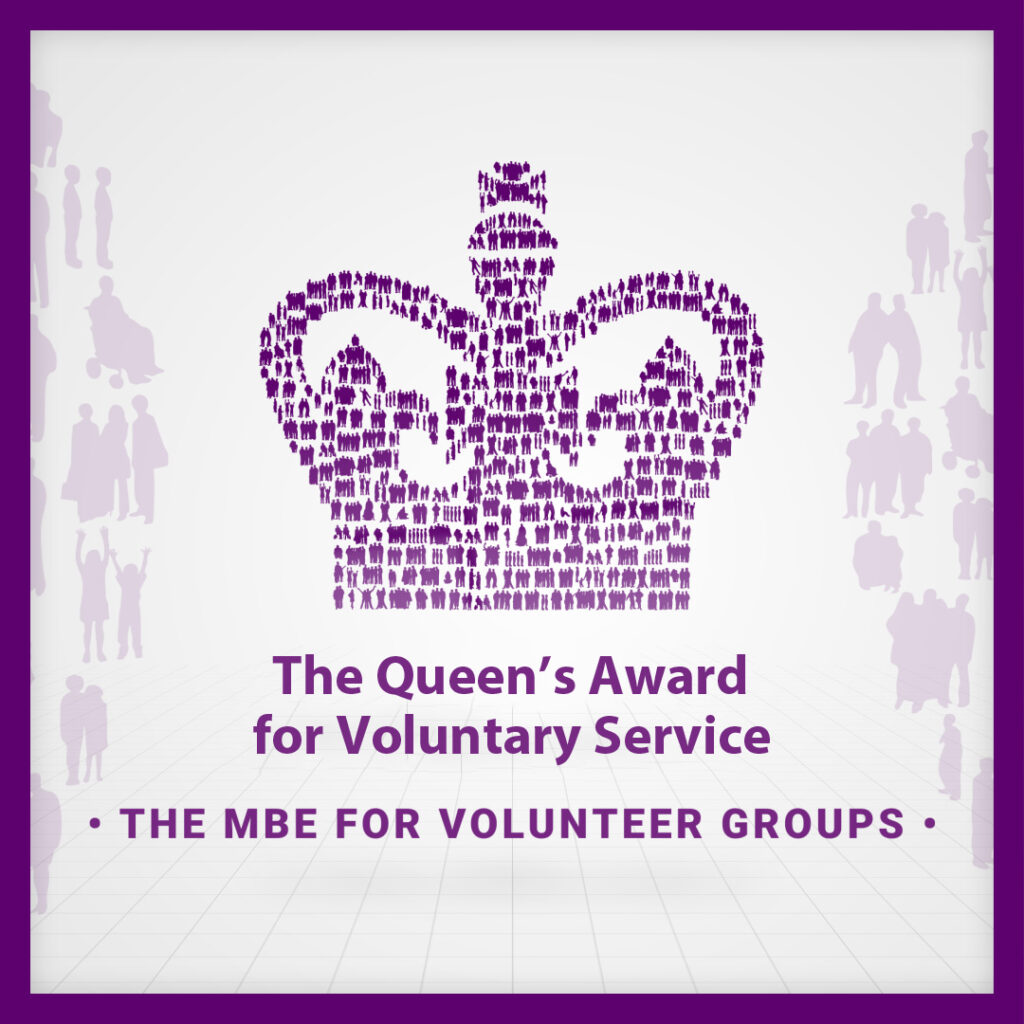The 19th Schools Science Conference comprised the following exciting sessions:
- Welcome & Introduction
- Science for Experimentation – Young Scientists present their own work
- Science for Interaction
- Science in Practice – 1
- Science in Practice – 2 and 3
- Totally Stem-azing Cells – Interactive Workshop
- Science for Inspiration – Keynote speech
- Round-up & Prize Giving
Science in Practice – 1, 2 and 3
Interactive Exhibits
Meet the Scientists and Healthcare Professionals
Hands-on interactive sessions where you meet scientists, try out some scientific equipment, undertake scientific assessments, answer questions for prizes and learn how science is applied to healthcare.
AND don’t forget to ask scientists what they do and why they love their jobs.
Totally Stem-azing Cells
Interactive Workshop
Presented by The Royal College of Pathologists
In the first part of this workshop, students will take part in a hands-on activity to find out what stem cells are, understand the difference between unipotent, multipotent and totipotent stem cells, and learn about stem cell transplants (also known as a bone marrow transplant).
Next, students will get involved in a discussion activity debating the ethical considerations surrounding ‘designer babies’ and ‘saviour siblings’.
The workshop will be run by experts working within pathology, giving students the opportunity to ask lots of questions.
Teachers will be awarded a certificate of activity attendance as the learning doesn’t stop when the workshop ends – teachers will be able to continue exploring this topic in school with their students using the list of useful links and resources provided by The Royal College of Pathologists.
Don Henderson Award
Competition
Young Scientists present their own work
Prior to today’s event we asked you to undertake a research project that you will present to the other schools in your group.
All presentations will be competing for The Association for Clinical Biochemistry & Laboratory Medicine Trophy for the Don Henderson Award
The award will be presented at the end of the day.
Career Pathways
Keynote Speaker
Hugh Montgomery
Two healthcare scientists talk about their career pathways with an opportunity for you to ask them questions such as:
• When did you decide on your chosen career pathway?
• Did you change your mind at any point?
• What advice would you give a young aspiring scientist?
• Professor Qasim – Why did you move from purely Clinical work into Clinical research?
• Arnold – Why did you change from research to diagnostic Healthcare Science?
• Would you recommend going into your career and if so why?
Waseem Qasim BMedSci, MBBS, PhD, MRCP, MRCPCH
NIHR Senior Investigator, Great Ormond Street Hospital
Waseem Qasim is Professor of Cell and Gene Therapy at UCL and a Paediatric Immunologist at Great Ormond Street Hospital. He trained in Immunology and Medicine at the University of Newcastle upon Tyne, and then specialised in Paediatrics.
Waseem subsequently joined Great Ormond Street Hospital and undertook PhD research into T cell gene therapies at UCL. With interests in Immunology and Bone Marrow Transplantation, Waseem has led ‘bench-to -bedside’ development of translational gene therapies, including trials of T cells engineered to express chimeric antigen receptors, recombinant T cell receptors and suicide genes. He has built specialised expertise in lentiviral vectors and was an early adopter of genome editing technology, leading to clinical trials with TALEN engineered T cells for leukaemia. Current projects are developing treatments using CRISPR/Cas9 and emerging base-editing technologies to address immune challenges of immunotherapy and regenerative stem cell medicine.
Arnold Awuah
Biomedical Scientist, Great Ormond Street Hospital
I did my secondary school education in Ghana, West Africa where I studied general science (inc physic, chemistry, biology and further mathematics).
After completion in 2014, I came to the UK in 2016 for my higher education but before that I had to enrol for an access course. I enrolled with South Essex college for an access to Higher education, science and passed with distinction in June 2017.
I did my higher education in September 2017 at the University of East London for a degree in Biomedical Science completing with a first-class Honours. I completed an IBMs registration portfolio having trained at Great Ormond Street Hospital (GOSH) in the Immunology laboratory under supervision of Dr Kimberly Gilmour.
I also had the opportunity to work as a research assistant in the Institute of Child Health under the supervision of Professor Waseem Qasim until my current appointment in the GOSH Immunology laboratory as a Biomedical Scientist. In 2021.
I was honoured to present at the UKPIN conference and published an article in CEI titled: T Cell responses to SARS-COV-2 in Healthy and PID patients and I am thrilled to have been nominated for a Rising Star Award sponsored by Chamberlain Dunn in the UK Advancing Healthcare Awards 2022.





